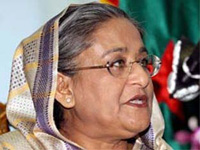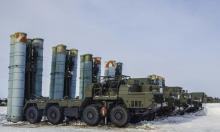India and Bangladesh Express Their Wish for Collaboration
The two south Asian neighbours realize the importance of the meetings between their leaders for resolving some pressing issues.

Cross-border relations have improved in recent years, and Bangladeshi Prime Minister Sheikh Hasina was expected to sign cooperation agreements in areas ranging from security and crime to power supplies during her four-day visit.
Hasina, who has received strong support from Delhi since she came to power a year ago, was likely to discuss her crackdown on Bangladesh-based Indian separatist rebels with Indian Prime Minister Manmohan Singh.
New Delhi has often accused Dhaka of providing shelter to militant groups active in India's northeast, but Hasina has detained several senior rebels and handed them over to India.
Both countries resolved a bitter dispute on sharing the waters of the Ganges river in 1996, and will likely work to end disagreements over how to use waters of smaller rivers flowing through both countries.
Other thorny issues include Dhaka's apparent reluctance to allow New Delhi transit rights through its territory to India's landlocked northeast, and India's refusal to grant Bangladeshi goods duty free access.
"Sheikh Hasina's visit is an opportunity to lay the foundations of a much more stable relationship," Arundhati Ghosh, a retired Indian official formerly posted in Dhaka, told reporters.
"It is in India's strategic interest to cooperate" with its small neighbour, she added.
AFP has contributed to the report.
Subscribe to Pravda.Ru Telegram channel, Facebook, RSS!




